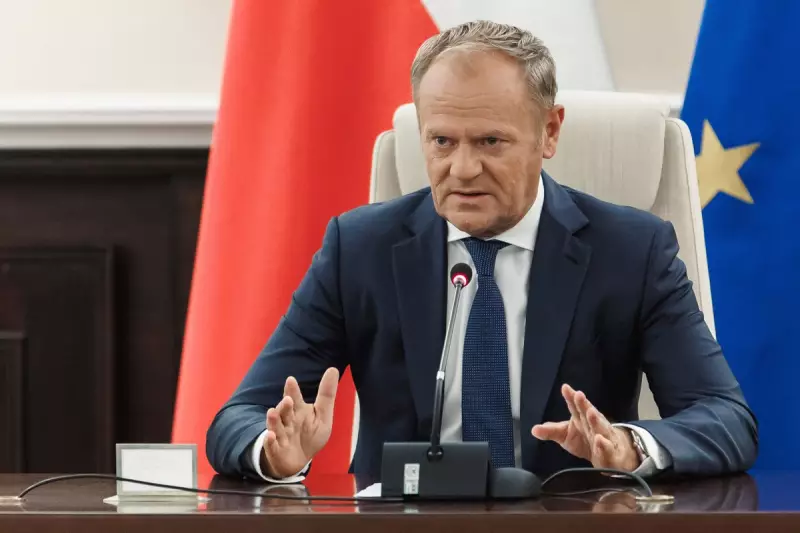
In a stark and sobering assessment of the ongoing conflict, Polish Prime Minister Donald Tusk has warned that Russia's escalating aggression in Ukraine could potentially lead to nuclear confrontation, while issuing an urgent plea for Western nations to significantly bolster their military support.
The Nuclear Calculus
During an extensive interview, Tusk revealed his grave concerns about Moscow's nuclear posturing, stating he takes Vladimir Putin's nuclear threats "very seriously." The Polish leader emphasised that while he doesn't believe nuclear weapons will ultimately be deployed, the escalating rhetoric creates unprecedented dangers for global security.
"I take seriously everything that the Russian side says, especially what President Putin says," Tusk declared, highlighting the need for Western nations to maintain vigilance while avoiding panic.
Urgent Call for Military Reinforcement
The former European Council president delivered a powerful message to NATO allies, insisting that immediate and substantial increases in military assistance to Ukraine represent the only viable path to securing peace. Tusk argued that half-measures and delayed responses have only emboldened Russian aggression.
"There is no alternative if we want to avoid the worst scenario. We have to invest in our military, in Ukrainian military, as much as we can," he asserted, calling for a unified European response that matches the gravity of the situation.
Poland's Frontline Position
As leader of a nation sharing a significant border with both Ukraine and the Russian exclave of Kaliningrad, Tusk's warnings carry particular weight. Poland has emerged as one of Ukraine's most steadfast allies, committing approximately 4% of its GDP to defence spending—significantly exceeding NATO's 2% target.
The Prime Minister stressed that Poland's security is inextricably linked to Ukraine's success in repelling Russian forces, making robust military support both a moral imperative and strategic necessity.
Broader European Security Implications
Tusk's comments come amid growing concerns about Russia's long-term ambitions beyond Ukraine. Western intelligence agencies have repeatedly warned that a Russian victory could embolden further aggression against NATO members, particularly the Baltic states and Eastern European nations.
The Polish leader's urgent appeal reflects mounting frustration among frontline states about the pace and scale of Western military assistance, with many arguing that incremental support has prolonged the conflict unnecessarily.
A Defining Moment for European Unity
Tusk framed the current crisis as a critical test of European resolve and cohesion. He warned that failure to support Ukraine adequately could undermine the entire post-Cold War European security architecture, with consequences extending far beyond Eastern Europe.
"This is not just about Ukraine's survival," Tusk emphasised. "It's about the kind of Europe we want to live in—one where borders are respected and aggression doesn't pay."





